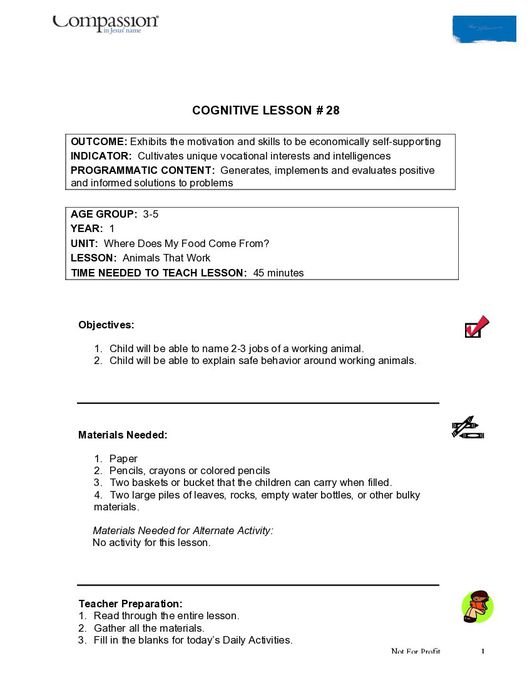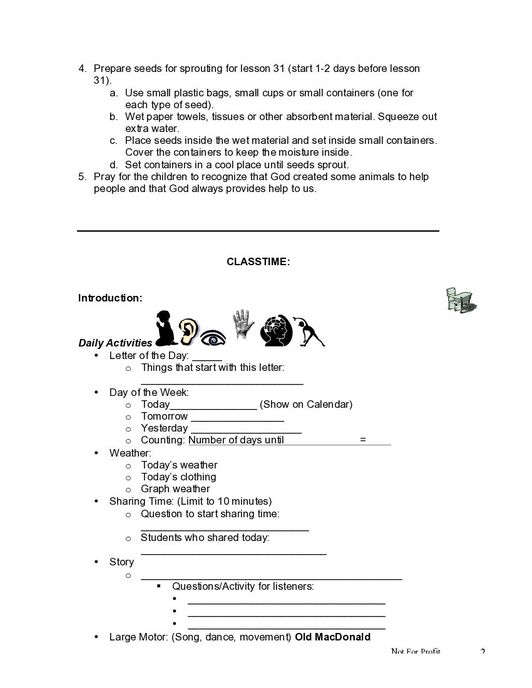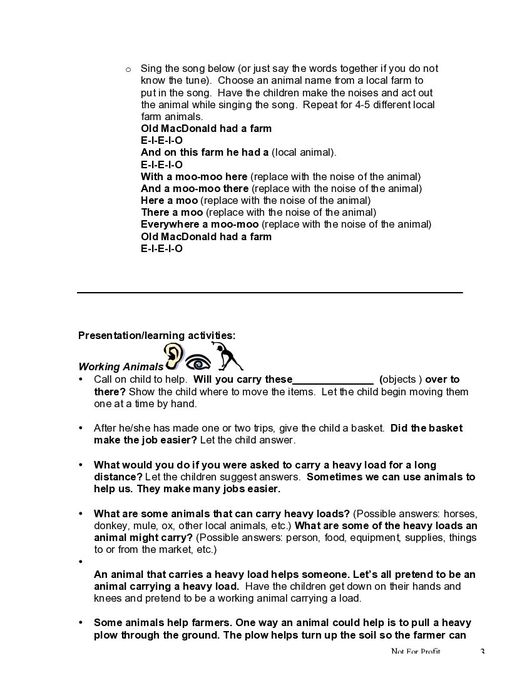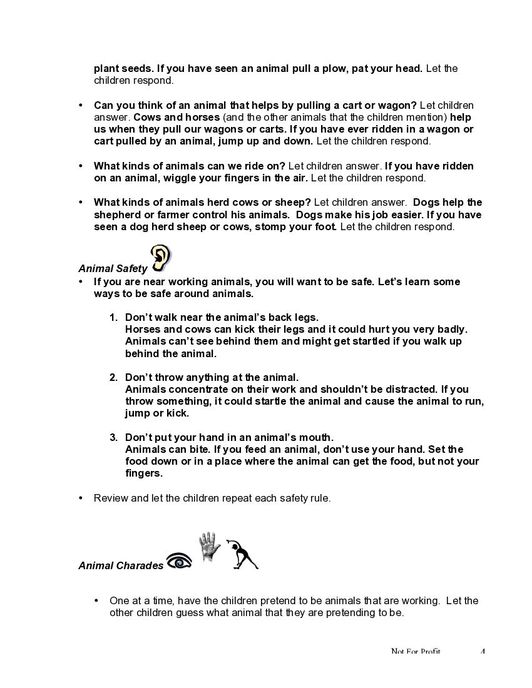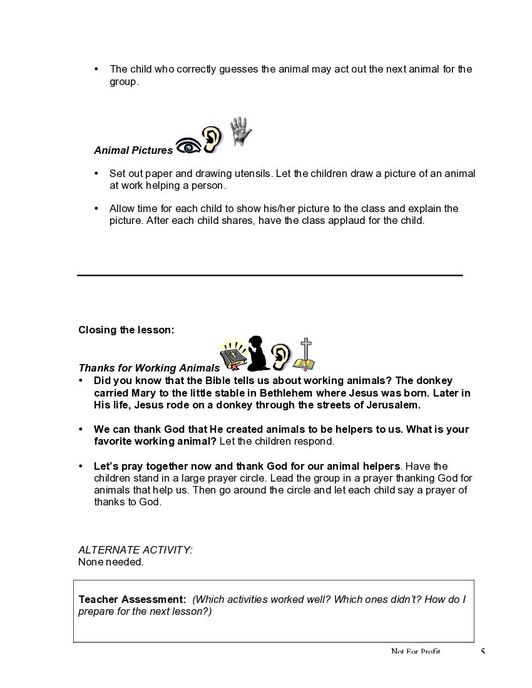Animals that Work
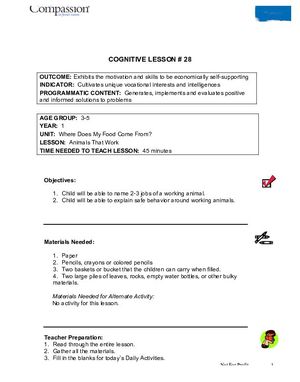
Oneranitu
Mukuyenera Kulowa mu Akaunti
You must be a member of the ForChildren.com community to download resources. Click the buttons below to sign in or sign up!
| Gulu | Cognitive Development |
| Copyright Owner and Year | Compassion International, 2015 |
The lesson “Animals That Work” teaches children about the differences between animals raised for food and animals that work. The children will learn several jobs of a working animal and be able to explain safe behavior around working animals. The lesson includes guided instructions for the teacher, including preparation, a script, and suggested activities to facilitate further learning in a fun and interactive manner. This lesson is designed for children between 3-5 years, and is the 28th lesson in the 1st Year “Where Does My Food Come From?” unit.
Zikalata Zofanana
-
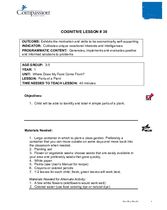
Parts of a Plant
The lesson “Parts of a Plant” teaches children about four simple parts of a plant and how plants grow. The children will discuss the jobs… -
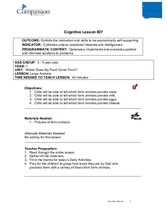
Large Animals
The lesson “Large Animals” teaches children about larger animals and livestock for food supply. The children will learn which animals pro… -
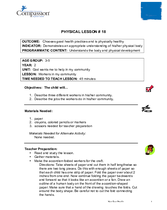
Workers in My Community
The lesson “Workers In My Community” is part 18 of a 44 part series on human development, family, health, and safety. This lesson teaches… -
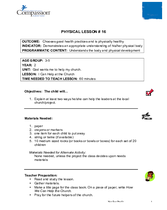
I Can Help at the Church
The lesson “I Can Help at the Church” is part 16 of a 44 part series on human development, family, health, and safety. This lesson teache… -
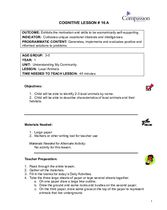
Local Animals
The lesson “Local Animals” teaches children about their community and surroundings by helping them to identify at least two to three loca… -
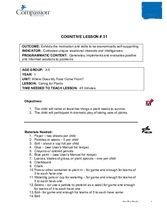
Caring for Plants
The lesson “Caring for Plants” will review with the children the different parts of plants and their functions as well as teach them the … -
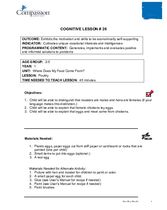
Poultry
The lesson “Poultry” teaches children about the differences between roosters and hens, making the distinction between male and female. Th… -
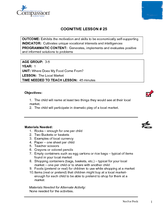
My Local Market
The lesson “My Local Market” gives children the opportunity to understand more about their local community and local food sources as they… -
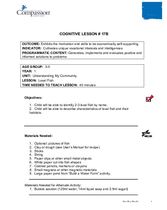
Local Fish
The lesson “Local Fish” teaches children about their community and surroundings by helping them to identify at least two to three local f… -
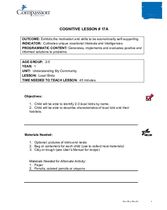
Local Birds
The lesson “Local Birds” teaches children about their community and surroundings by helping them to identify at least two to three local …
ForChildren.com is presented by Compassion International, a registered 501(c)3 non profit organization. All resources, courses, and discussions are intended for educational use only, not for profit.

